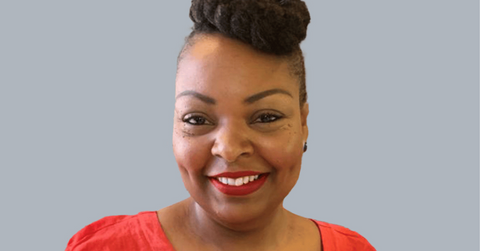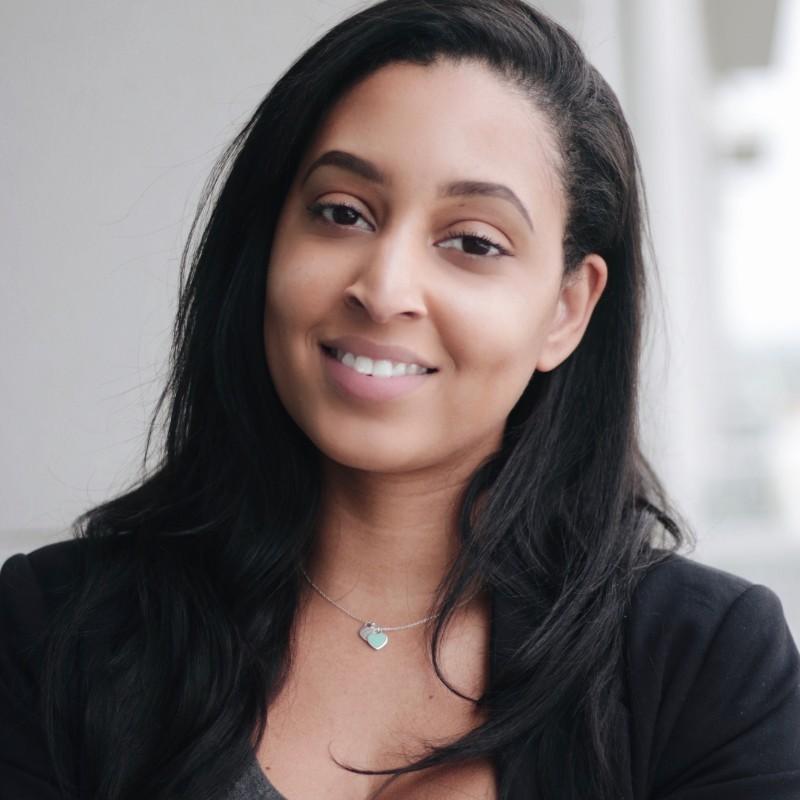Salah Goss is the social impact advocate we all need. Her dedication to equity, coupled with her extensive global experience and the wisdom inherited from her late mother, form the bedrock of her career triumphs. With over 20 years of experience in social impact at notable institutions including the Bill and Melinda Gates Foundation, Salah now leads as Senior Vice President, Mastercard Center for Inclusive Growth. A continuous learner and doer, Salah is among the industry leaders announced as part of the Rockefeller Foundation Bellagio Center’s 2024 Residency.
Salah’s star will only grow brighter as she gives a voice to the voiceless. Upon announcing her residency fellowship, Salah sat down with Her Agenda to share her career journey and future plans.
Her Agenda: Thank you for taking the time to speak with me today. Can you tell us a bit about your career journey and what initially sparked your passion for financial inclusion?
Salah Goss: I was that kid who was really interested in equity from a very early age. I did not know the word equity when I was younger, but [I was interested in] making sure things were fair. I got it in my head that where you are born, what you look like, your gender or your orientation should not dictate the trajectory of your success. I did not start [with] financial inclusion. I started more in [asking myself] ‘What are the big levers that you could pull to make things fairer?’ It all stemmed from this idea that your place of origin should not dictate what you could achieve. My father is from Baltimore [and so] our family likes crab. So, [when I was seven years old] he was making crabs and the crabs were banging on the pot. If you have ever made crabs, they go in alive. They are screaming and banging on the pot. I took my three sisters and me, and we led a protest outside. I had everyone lock themselves in the car and convinced my father that he was a murderer because the crabs had rights and he was killing the crabs. So, I always thought about the voices of people who cannot speak for themselves. Fortunately, I’ve been able to use my different positions within the public sector, philanthropy, and the private sector to speak for those who didn’t have a voice. It is just that their station in life does not afford them the agency that we all have. And that has always been extremely important to me.
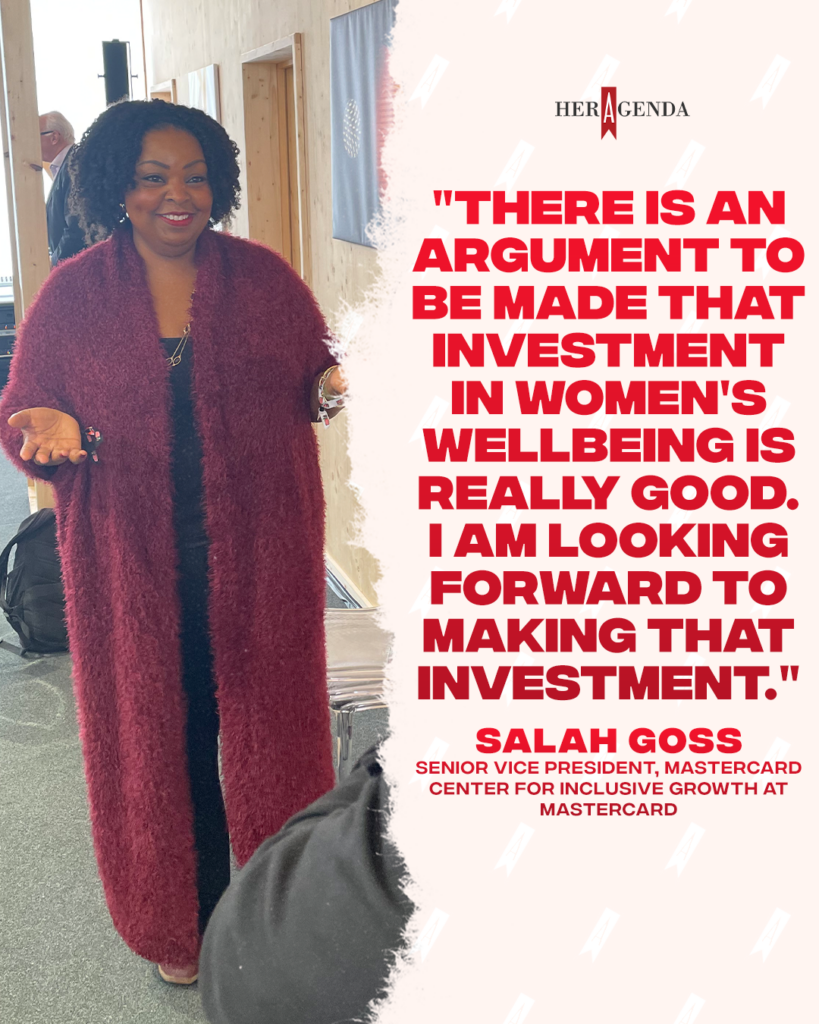
Her Agenda: One of the things that stood out when researching about you, was your global viewpoint. With degrees in International Development and Economics and your international work experience, can you tell me more about why a global/international view was particularly of interest to you?
Salah Goss: It has been an evolution. My idea before was in this space where everyone should have agency. Other countries may not have the social safety nets that the US has. If you think about political instability, even our social security system, and the things that we do to ensure that everybody has what they need: our social programs, homeless shelters, and even WIC programs. A lot of other countries still needed that. If there was any place where this kind of work would be valuable, it would be in countries that did not have the institutions that we had.
My career started overseas because of that reason. There is a story that goes along with that, too. When I was small, maybe two years after the crab incident, we won a contest to visit Africa. It was on the back of a Sta-Sof-Fro bottle of Afro Sheen. Their idea was that every Black American family should see Africa. My mother figured out how to enter this contest, and we won. In Jet magazine [around] 1987, there is a picture of me getting off an airplane in two afro-puffs and stepping onto the Ivory Coast.
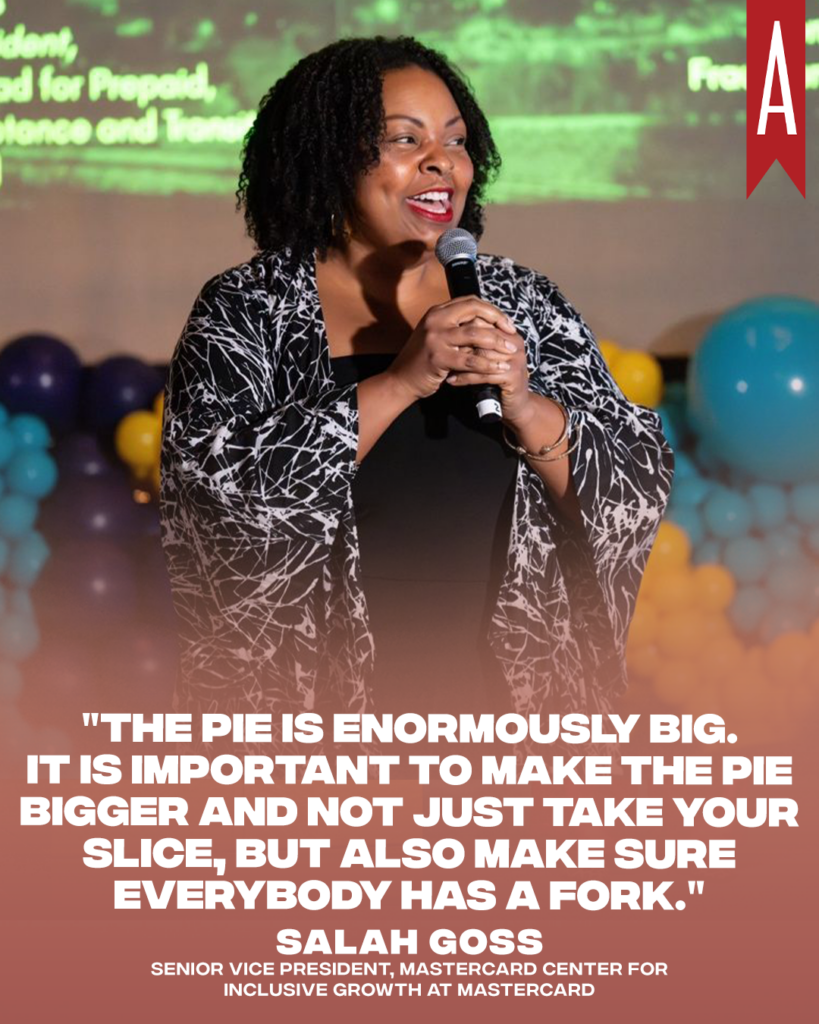
We went to a trading village. We got there, and there were beautiful statues of ivory, wooden gazelles, and all these beautiful things that were sold at this trading village. I do not know how my mother and others knew, but they immediately opened our suitcases. [They] started trading these beautiful works of art for our old jeans, sweaters, ballpoint pins, toilet paper, and little trinkets. And my little mind was horrified because I was thinking ‘What’s going on that something these artists spent weeks creating is easily traded for my jeans!?’ And it just never sat right for me that day on. I did not know words like balance of powers or socioeconomic inequality. I did not know those words but something to me was wrong. This exchange of value seemed so unfair.
I found this essay I wrote a while ago that said I would live in Africa, help families, and speak French. From that day on that is what I decided to do. Again, starting in Africa because it seemed so unfair and so unbalanced there. I have worked and lived in six different countries and benefited from seeing different cultures and working in different industries. But I think it has helped shape my global vision and global perspective.
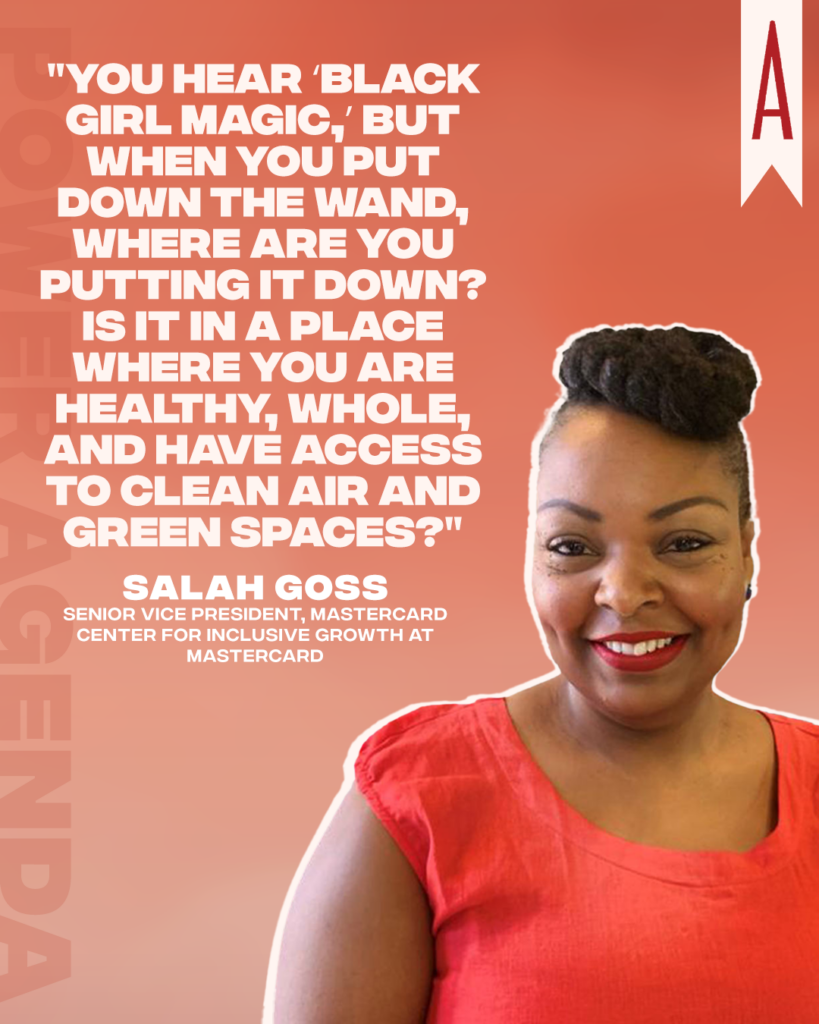
Her Agenda: Over the last decade, you have grown your career at Mastercard from Product Development to Senior Vice President, Mastercard Center for Inclusive Growth at Mastercard. To what do you attribute your career growth?
Salah Goss: I get this question a lot. It is about having a learning mindset all the time. No matter how long you have worked, there is always something that you can learn. Having that posture has helped because I have switched different sectors. I remember when I was going from philanthropy to the private sector, and people were very nervous. Being open to learning new things contributed to my success.
The other piece of advice I would say is, to work as if someone is always watching. What I mean by that is if you have that kind of work ethic and that kind of attention to detail and pride in your work, people will notice. Whether it was getting a job where I was one of the youngest people on the team, moving into the Gates Foundation, or the boards I’ve been on. I’ve been fortunate enough to have opportunities come to me because of the work I’ve done.
The third thing I learned later in my career is that the people you work with are as important as the mission. For someone who’s very mission-driven, it took me a long time to really understand that. What I mean is to really develop and pour into the people you work with on your team. That can be the most fulfilling thing you can do because you have somebody who is brought into the mission and can carry it on – sometimes better than you can. That is the way the work lives on. If you are really investing in your team, and they know what you know, then they understand what you are trying to achieve. Their development and progress become the most important thing you can do as a manager. That has taken me really far. I’ve understood and doubled down on really investing in people. And that will keep paying off in dividends.
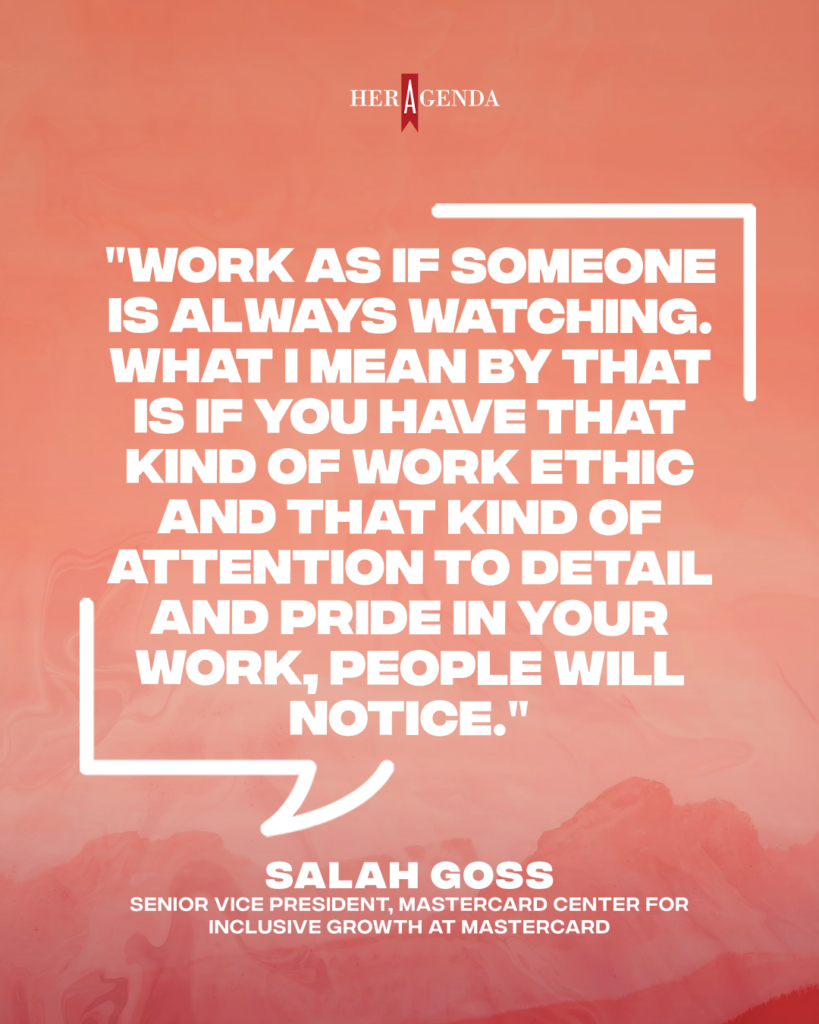
Her Agenda: Who are some of your career mentors in real life and in your head?
Salah Goss: My mother, [but] she has passed away, [so] it is in my head. But when I think about what I needed, whether it is to succeed or, quite honestly endure when times are hard or make my way through challenging situations, it is really the things that she taught us. One of the things [my mom] used to always say is: ‘when you know better, you do better.’ [That] has really sustained me. You can try your best, and sometimes you fail. But [if] you always get up, you will succeed if you keep going. She taught us to kind of have ‘stick to it-ness.’ To whom much is given, much is expected. It has always been natural to me to have a career that is laser-focused on helping other people and uplifting communities that might not have agency or voice. She sent us to the best schools. I have lived and worked in six different [countries]. I have gone to graduate school in three countries. That is because [of] her, [and] father got on board, and he helped too. [But] she was the mastermind. She is the voice in my head. She has been guiding me ever since I could even walk and talk. And it remains to be the case.
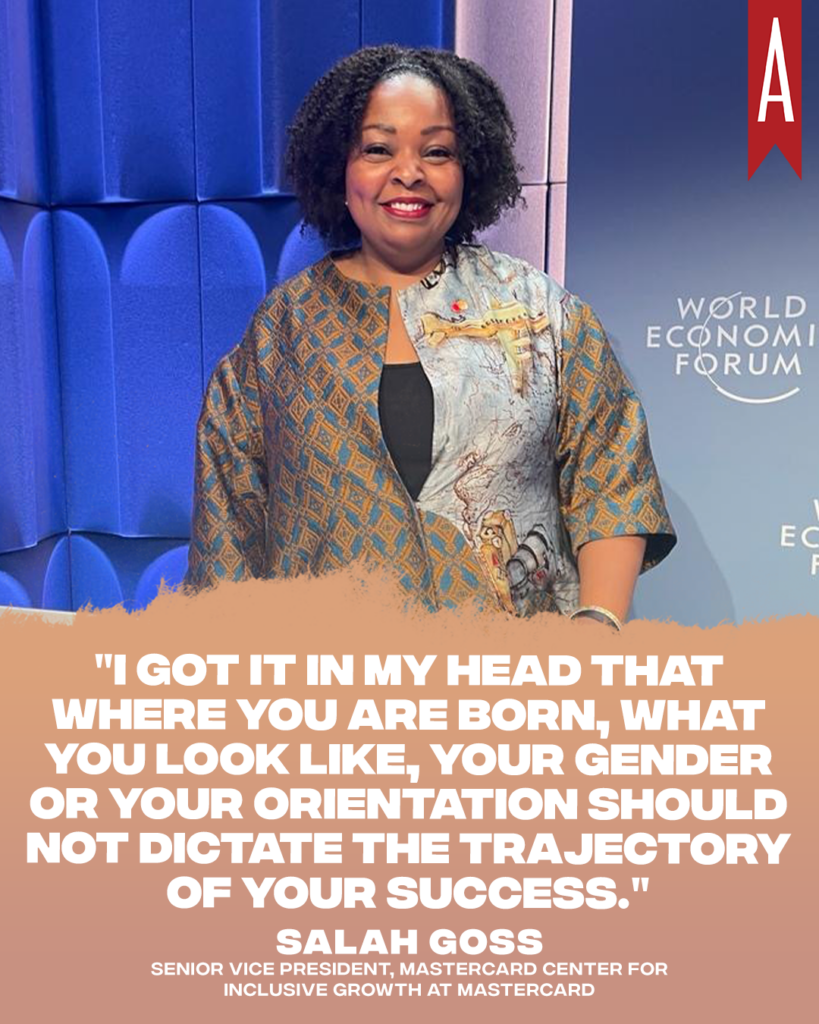
Her Agenda: For those who do not know, tell us about the Racial Equity Gap, and why it is a passion of yours.
Salah Goss: The Racial Wealth and Opportunity Gap, in the U.S., [was] created by centuries of policy, social norms, and economic practices that [led] to disparity in wealth [specifically] for the Black U.S. population versus others. Right after the end of slavery, the Freedmen’s Bank was set up. [It] was a bank where freed slaves put their money in. However, it was completely mismanaged and failed. Millions were lost to [the] Tulsa massacre, [and that] wealth [was] just gone. And when we say wealth, we mean homes that were owned, land that was owned, [and] businesses that were owned. [Fast forward] to more recent times with redlining. Black homeowners were not allowed to have mortgages in certain areas [and] that created disadvantaged communities. All the way up into the recession of 2008, Black households have not recovered at the level that white [households] have. [Most recently] we saw [during] COVID some of those disparities really doubling down.
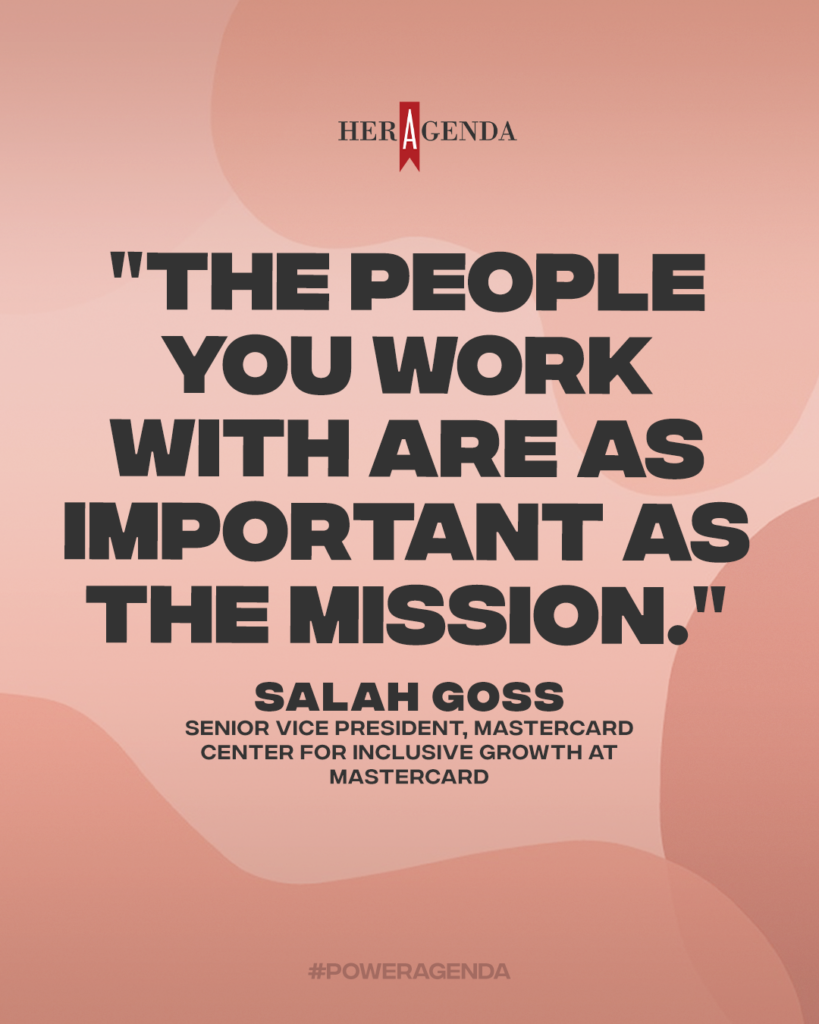
It is [these] systemic and historic practices and policies that have created a lack of wealth in the Black community. It is important because when we think about the vision of prosperity in the US, the middle class, we’re not afforded that. Think about it as starting a race 10 laps behind. There was this great study done in 2018 Duke University published that put it very simply. [It] said, there is nothing that the Black community can do unilaterally that will help or mitigate the wealth gap. The [gap] is a clarion call and it’s a perfect example of how we [all] need to work together to solve it.
So many things follow from not having wealth built up in your household, not having assets that you can pull from in an emergency, and not having savings. In general, a Black household has one-tenth of the wealth as a white counterpart, and that is not corrected for through education. So, if you have the head of a household who is Black with a college degree, [they] still [have] less wealth on average than the head of a white household with just a high school diploma. Even when we get educated, that still does not [remedy] the centuries [where] we were left out of policies when we were the victims of unfair practices, where we did not get to build up generational wealth. [This] is not something that can be corrected in our lifetime unless something radical is done. It shapes your reality as well as your children and their children. That is why it is critical. If we do not solve [this], we will remain ten laps behind.
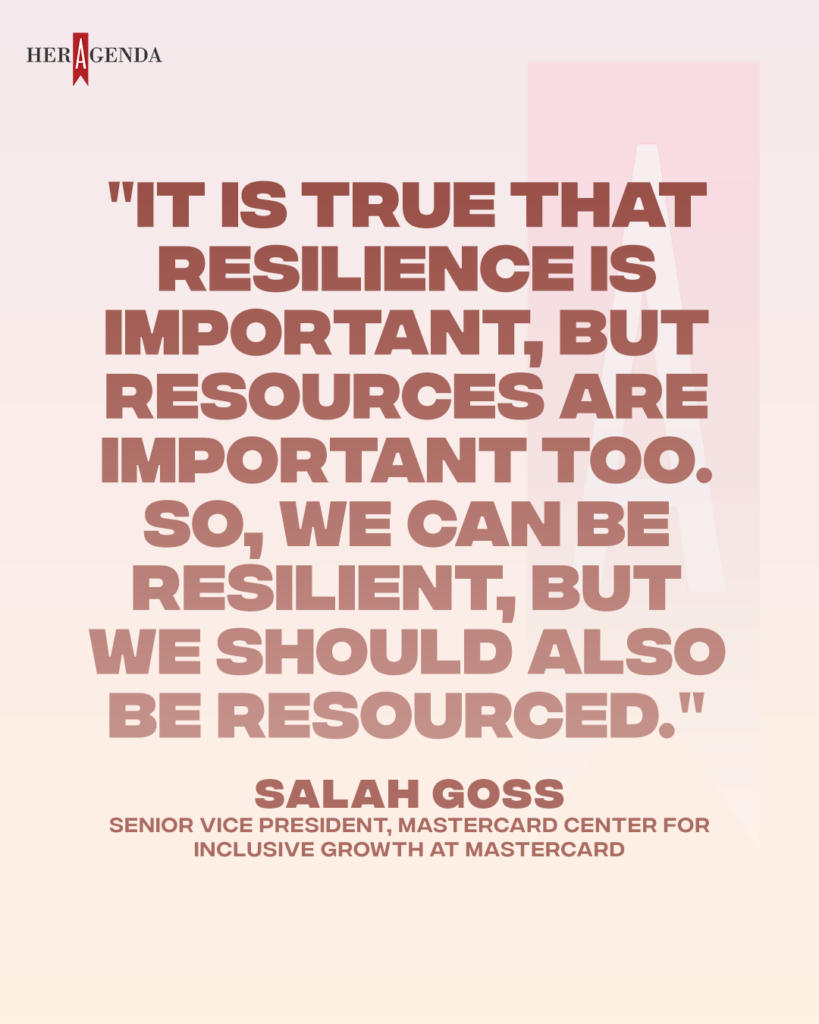
Her Agenda: Recently, a significant attack on DE&I and social equity efforts has occurred. What are your thoughts concerning this, and how do you find the endurance to keep going in the equity space?
Salah Goss: I will start with the last question. For better or for worse, there are always waves and seasons when people are more or less inclined to think beyond themselves and invest in equity. I always start there because this is not the first time we’ve seen a backlash or [momens] where the work gets harder. I have been doing this for over 20 years and for reasons that could be political, socioeconomic, or cultural, there is always going to be some resistance to trying to make sure people have what they need. Usually, because [some] people [believe] that [when] someone else gains, they lose. The pie is enormously big. [It is important to make] the pie bigger and not just take your slice, but also make sure everybody has a fork.
Opinions are not facts. There will always be feelings that go against the work [of making] sure everyone is prosperous. I do not let it sway me too much. We need to invest in having the infrastructure space to keep doing this work. That takes good programming and a studied approach in system change. If you think of this as [a] type of system change, that helps you [to] endure. It is tough because I am doing the work [while] living through the ramifications of what we are trying to correct. That’s where self-care comes in. There is the idea that we have to be strong to be able to fight. That’s not true. We can be vulnerable. I think it’s similar to how psychiatrists have psychiatrists they can talk to. D&I and equity are topics that are very ‘close to the chest’ for people. It is true that resilience is important, but resources are important too. So, we can be resilient, but we should also be resourced.
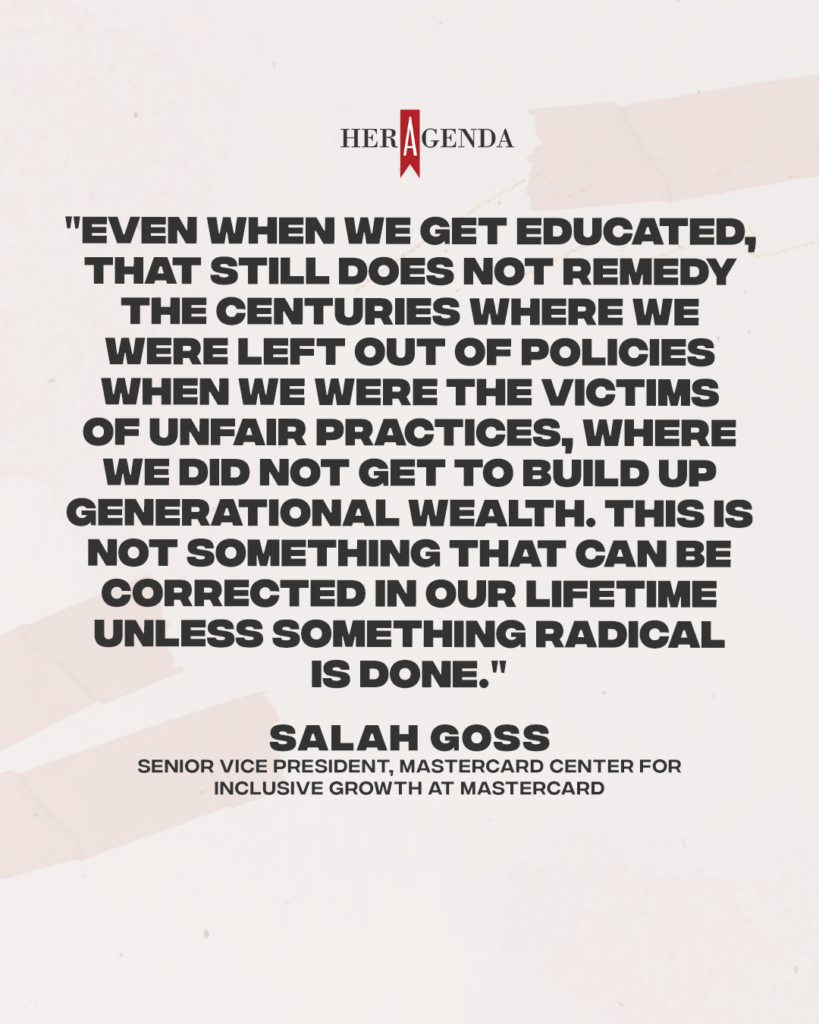
Her Agenda: You [were just announced as one of the] Rockefeller Foundation Bellagio Center’s 2024 Residency Fellows. Alumni from this program include Ruth Bader Ginsburg, Maya Angelou, Nikole Hannah-Jones, and more. What does this fellowship mean to you?
Salah Goss: About a hundred thinkers, artists, and scholars are welcomed into this four-week residency. It is a month-long period and gives you the space and recognition that there’s merit to your idea. You are in residence with other scholars who are thinking about working on your idea. I was so excited and shocked when I got this award, not only because of the prestigious names you mentioned but because what I plan to work on wakes me up at night. It has been on my mind for many years. To be able to have the distinct space to do that and know the footsteps of work walking in, it has just been tremendous, exciting, humbling.
Her Agenda: Can you give us a sneak peek into your project?
Salah Goss: I can. [My project] came from the quiet moments in doing this work. There is an evolving recognition of the contribution that women make. We know that women [in business] are successful. We have acknowledged the ability of women to organize. We know that when making family decisions, the impact is greater. We recognize women for what they can contribute. But as I started thinking about it, I started asking the question, who is worried about our happiness and well-being? Not [just] because we earned it. But because inherently we have the right to be happy and to be well. You hear ‘Black Girl Magic,’ [but] when you put down the wand, where are you putting it down? Is it in a place where you are healthy, whole, and have access to clean air and green spaces? When thinking about the different facets of my career, [it was always about] levers and tools for people to access agency and well-being. It is the umbrella of all the things I have been working towards. I am so excited to be able to focus on it. There is an argument to be made that investment in women’s wellbeing is really good. I am looking forward to making that investment.
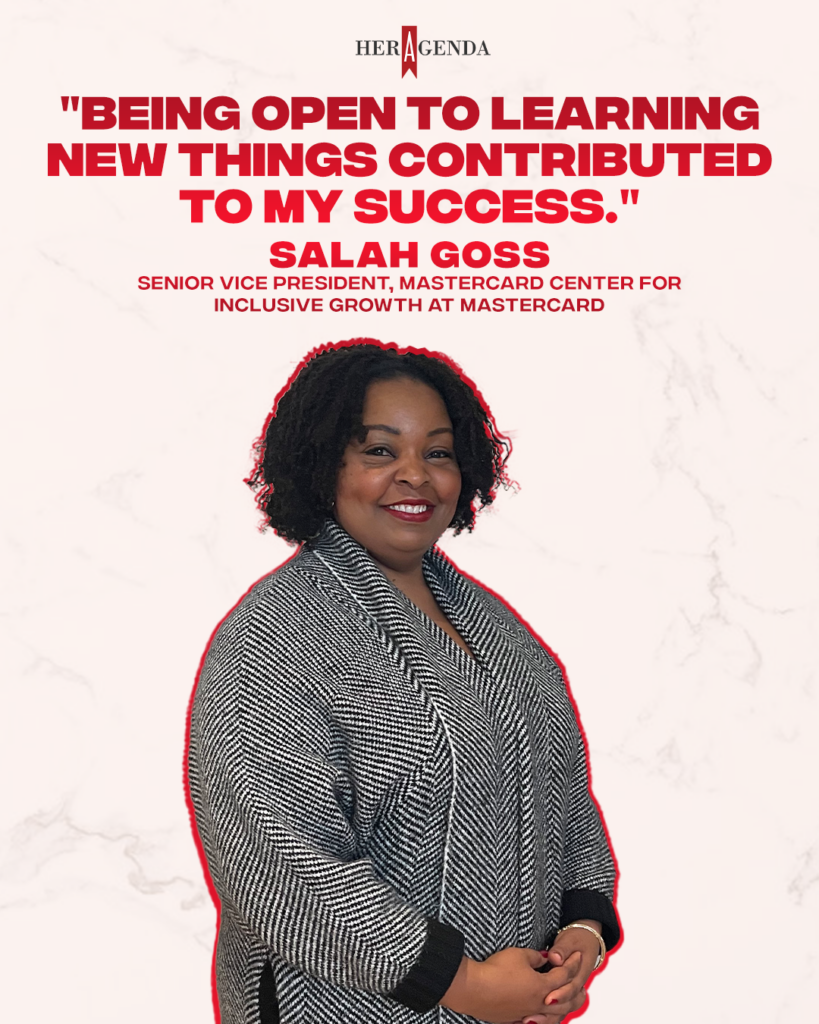
Her Agenda: What is your legacy? What do you want others to take away from watching and seeing your work?
Salah Goss: To be an example of the possibility of working, living, and striving for the well-being of people who cannot or have less ability to fend for themselves. I have worked in the government. I have worked in philanthropy. I have worked for NGOs and now the private sector, and it has always been toward the betterment of communities that have not been paid attention to. It is possible to have a fulfilling career, and it might not look how you think it would. [That’s] a legacy I would be proud to stand by, giving people all the different flavors of what service looks like. And being clear that it can be completely fulfilling [while] not having to sacrifice.
[Editor’s note: This conversation has been edited for length and clarity.]

